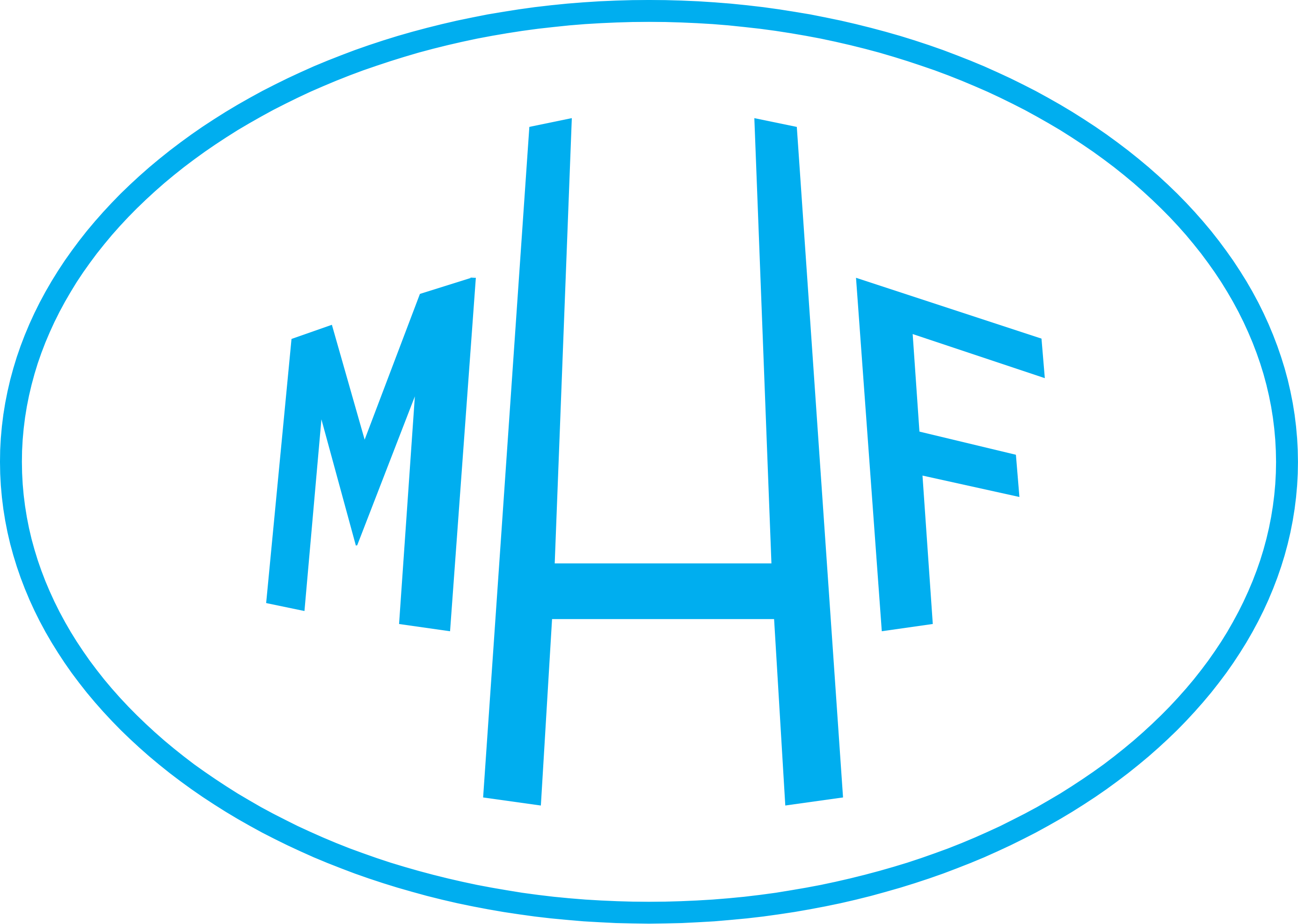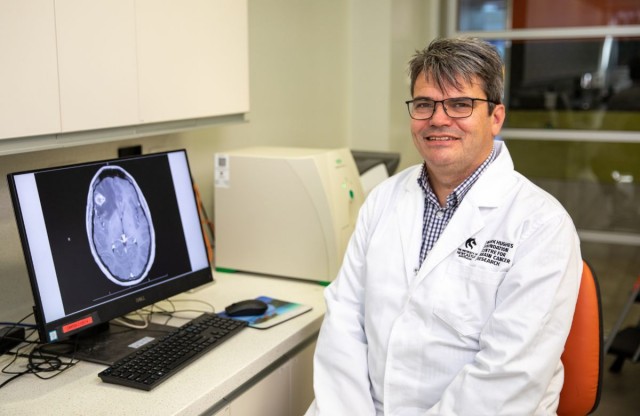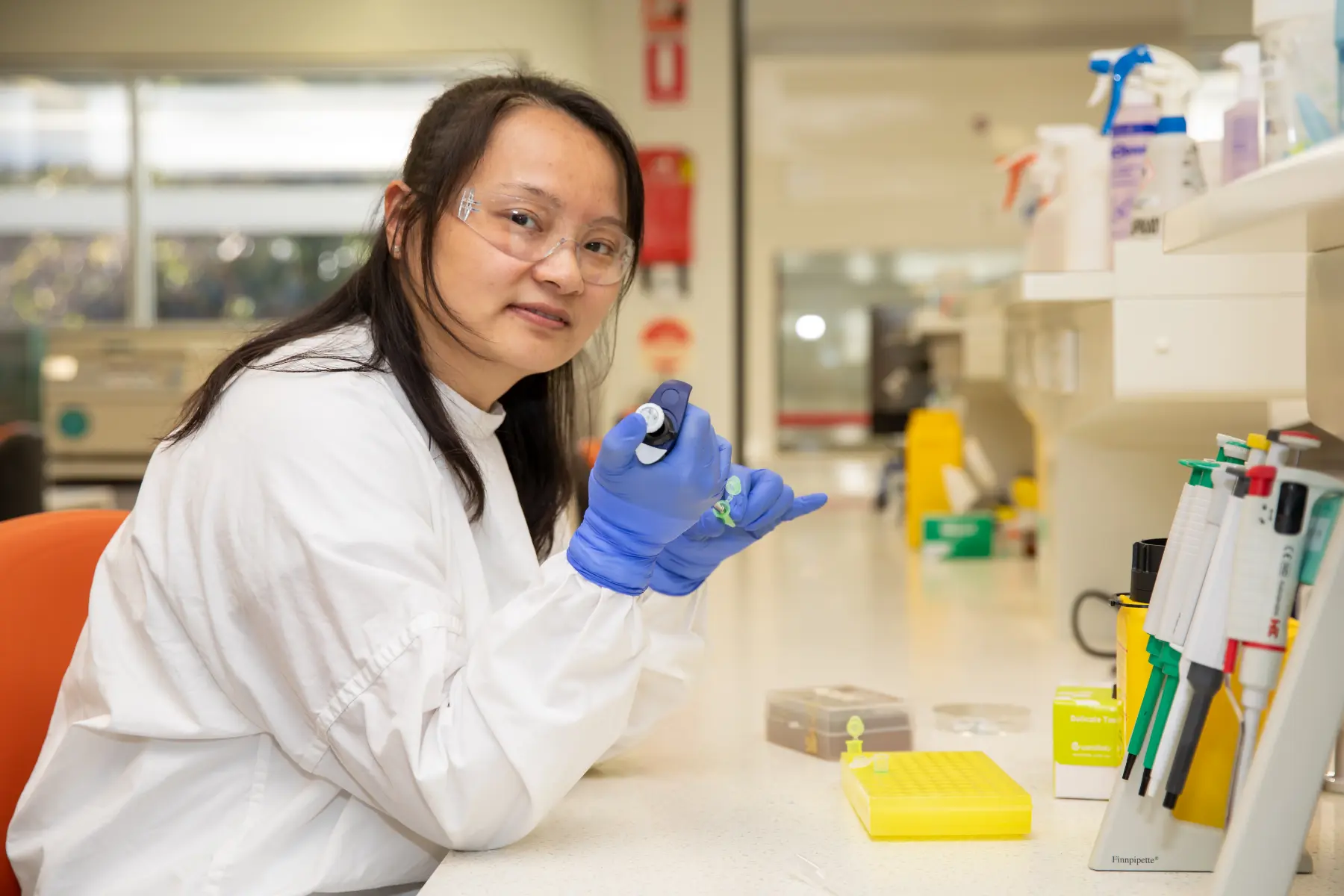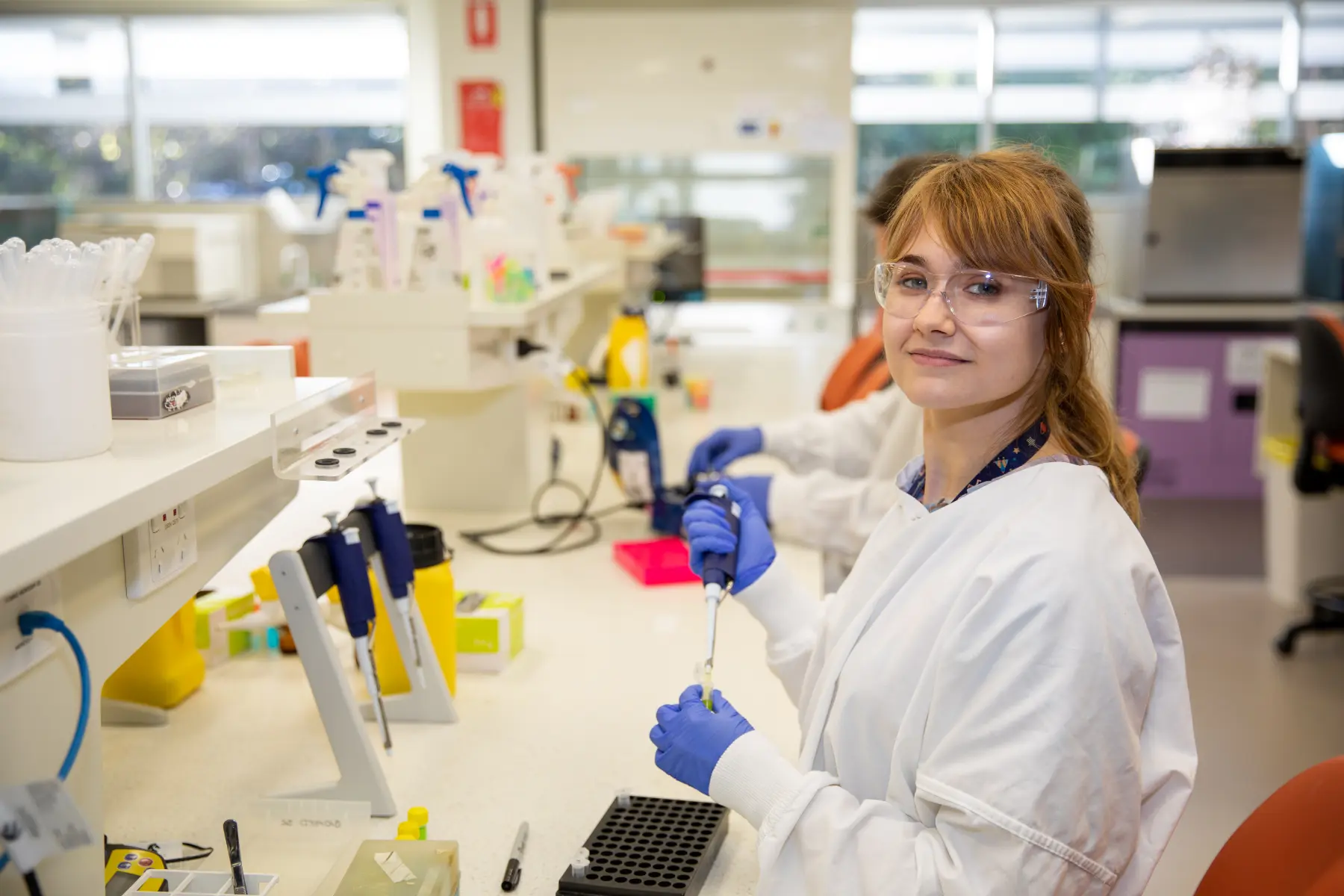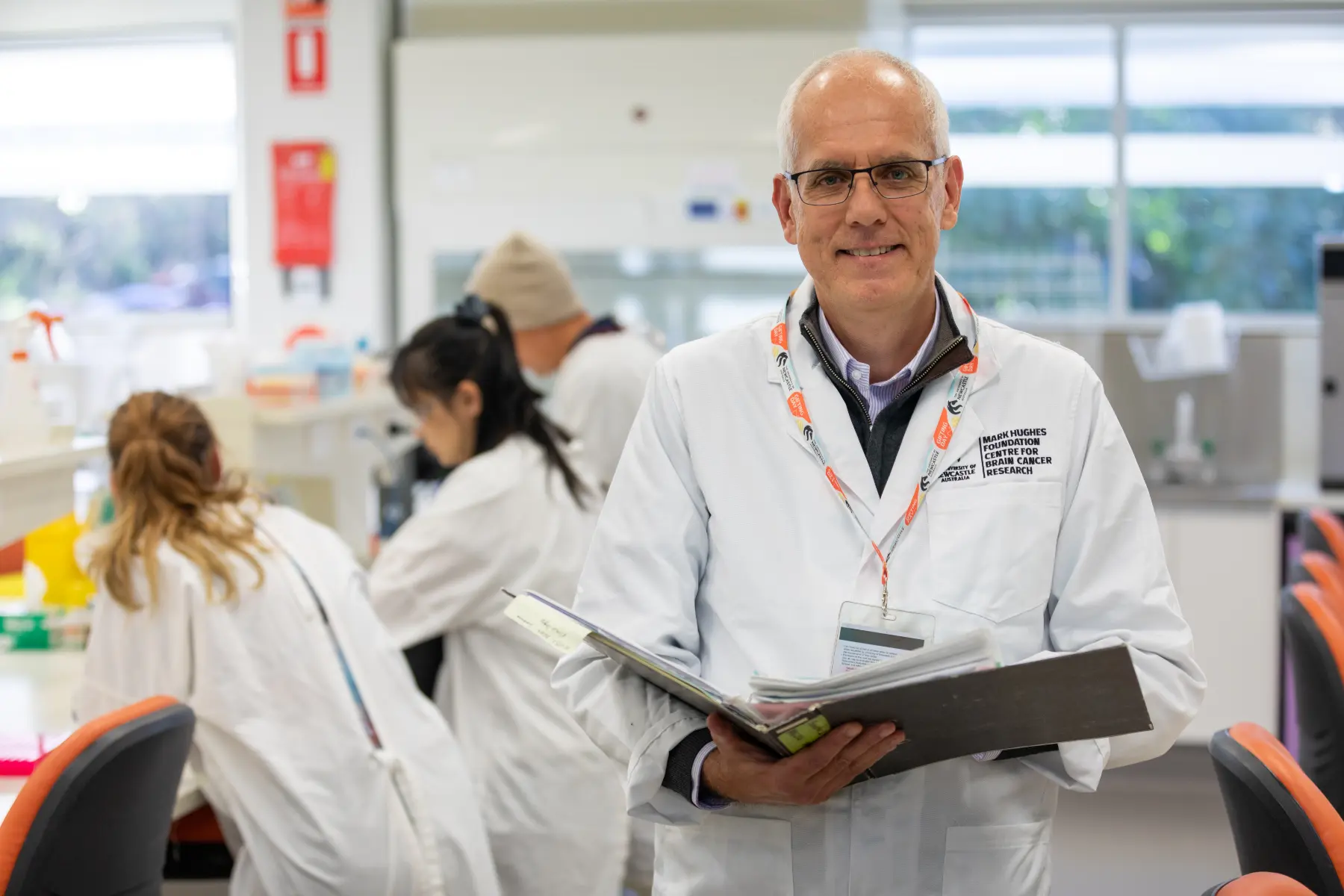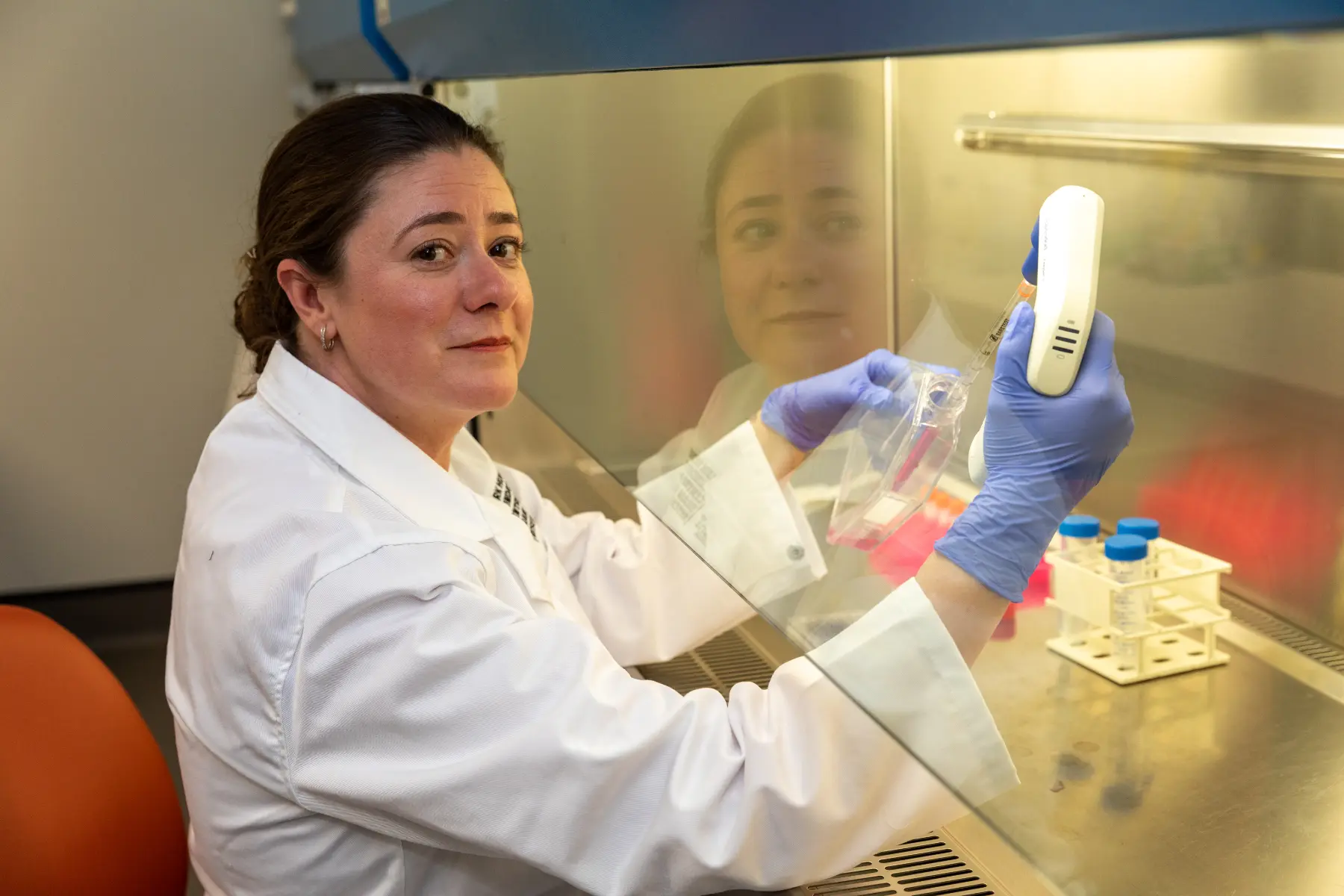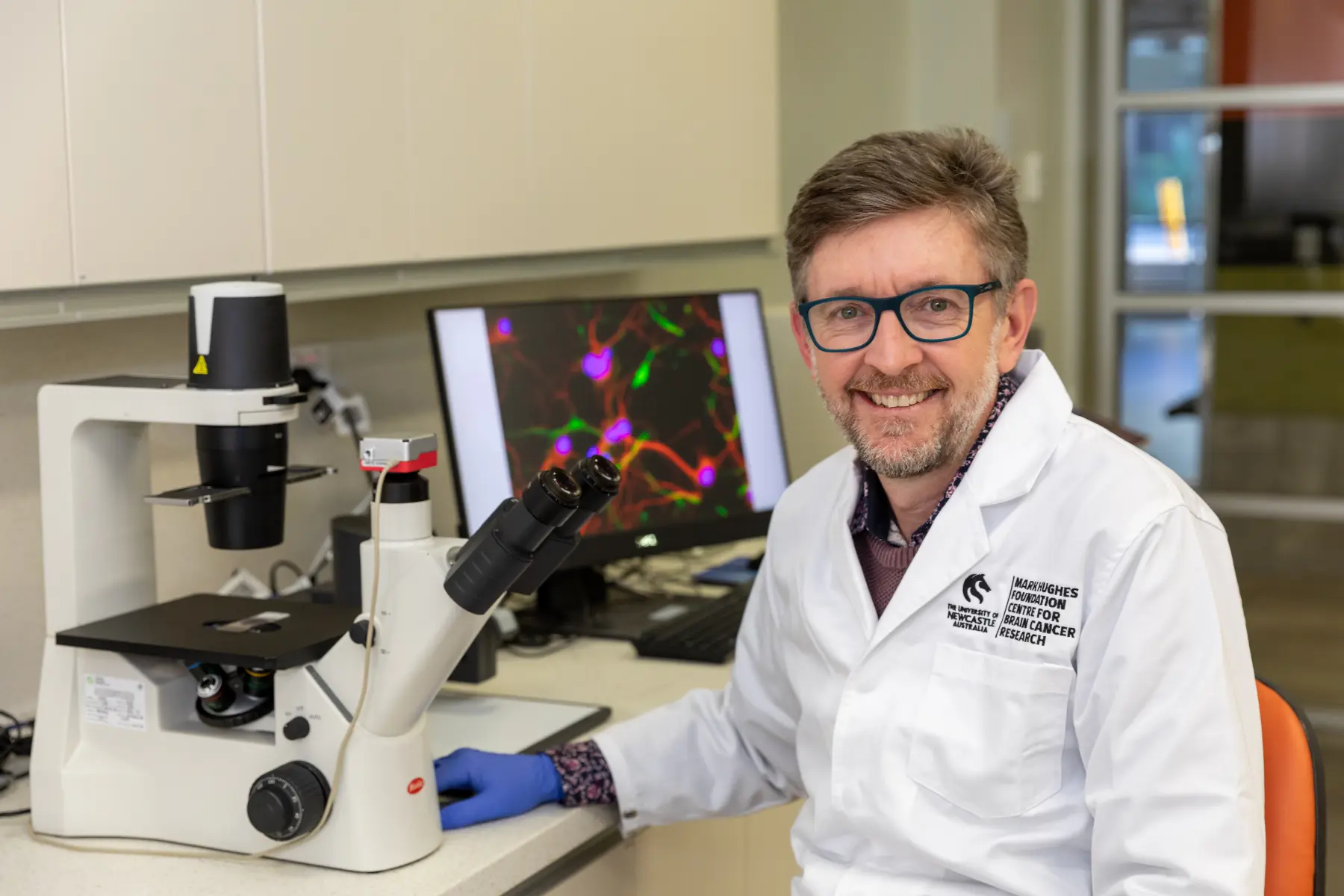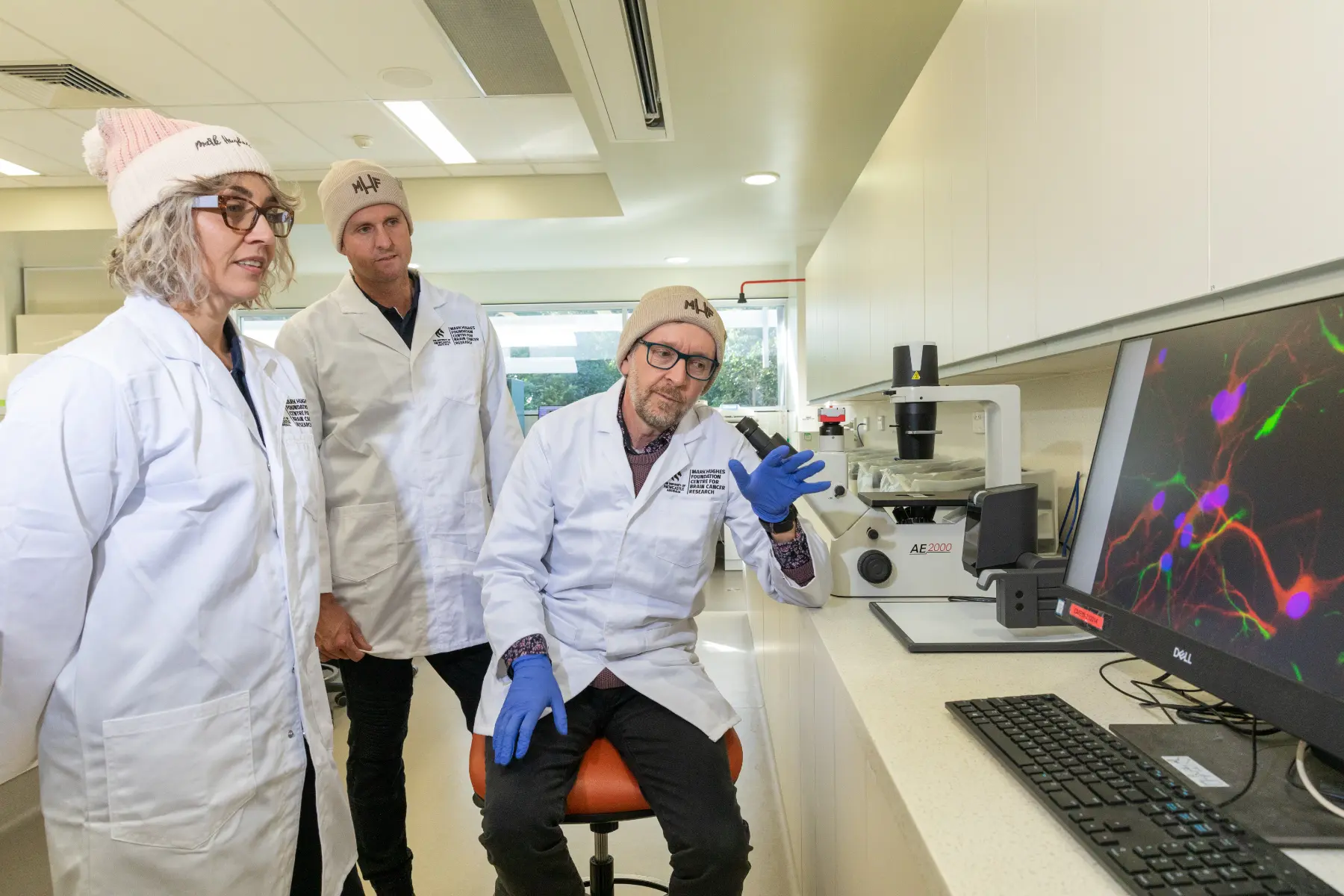Tell me how you first got involved in with MHF
I first heard about the MHF when we were thinking about moving to Newcastle. We were in Germany doing research and I heard about the foundation and remember thinking ‘what a great group of really motivated people! ’My wife got a job at the University and we moved here. I was trying to finish my PhD in brain cancer and quickly realised that was not possible in a fulltime clinical role. The foundation kindly funded a research fellowship, I joined the Scientific Advisory Board and we have been working together ever since.
What’s your personal philosophy on what should be done about Brain Cancer research?
Brain Cancer is a hard problem. In many cancers we can rely on the pharmaceutical industry to help develop solutions. Brain Cancer is a tough one for them to build a business model as it is rare and the patients are divided into lots of small groups. That makes it really important for communities and governments to help. We need to think outside the box to develop solutions for this hard problem.
Tell me about someone who has influenced your decision to continue fighting brain cancer.
I’ve had a patient who I treated in Queensland more than 10 years ago with a high-grade brain cancer. He has taught me that sometimes we can win with this disease but we never know who with – so we need to get better technology and apply this sensibly but never give up!
What do you think we can change over the next five years?
I think we can improve the experience for patients and families quite quickly. The MHF is doing this effectively with the Brain Cancer Care Co-ordinators who help patient’s journey through the healthcare system. We need new treatments and a way of rapidly testing them. Developing sensitive blood tests for brain cancer will help us in doing this.
What is your proudest moment so far in life?
It was the day we presented our brain cancer trial at the American Society of Clinical Oncology scientific meeting. It was a huge meeting with more than 40,000 participants and our team was presenting one of the four plenary presentations. That trial has shown oncologists around the world that we should use chemotherapy for older patients with glioblastoma but that we can significantly shorten the radiotherapy course for many of them.
How do you balance your career and family?
We tend to have a pretty busy family life but we try not to work on the weekends too much. We have family in New Zealand and enjoy going there for holidays and find that very relaxing. I also like building things with the kids. We are currently finishing building an office in my workshop which started as a COVID project.
If you weren’t a doctor what would you be doing instead, or what would your life be like?
I think I would be a scientist or an electronics engineer. I nearly became an industrial chemist before I became side-tracked by medicine and even worked for Apple for a while. Many of my friends are chemists or physicists around Australia.
How would (someone) describe you?
I think they would say I have lots of interests, enjoy people and have a restless curiosity … and probably he talks too much!
What do you do when you aren’t trying to find a cure for brain cancer?
I really enjoy making Shaker style furniture but I sometimes think I mainly enjoy collecting and renovating tools and understanding how to get the best out of them. My wife, on the other hand, thinks I just make expensive sawdust! She might be correct….
What might (someone) be surprised to know about you?
I think just how obsessed with woodwork you can become – and that extends to being able to drive a forklift!
What motivates you most?
The ability to be able to help people at their most vulnerable point is a great motivator. Being able to take the challenge to our research team, bounce off colleagues, motivate students and then take changes back to treatment in the clinic is what gets me up in the morning!
